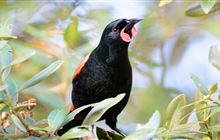Wellington kiwi roost gets pest control boost
Archived content: This media release was accurate on the date of publication.
Introduction
A forest park near Wellington has been swarming with more volunteers than usual for the past year; and they’ve installed a massive new network of next-generation traps to tackle stoats and rats which prey upon brown kiwi and other native birds.Date: 21 December 2017
Over 50 volunteers from Rimutaka Forest Park Trust, Moa Conservation Trust, and local tramping clubs invested over 1,600 hours in the epic task over the past year, battling bad weather, steep climbs and cutting 50 km of new trap lines.
DOC funded the 1,000 new self-resetting Goodnature traps, in effect doubling the number of traps in Remutaka Forest Park.
The park, near Wainuiomata, is home to North Island brown kiwi, and this was the most significant pest trapping expansion in the park since the Rimutaka Forest Park Trust released kiwi in 2006 and bolstered their pest control in 2015.
DOC Conservation Ranger Angus Hulme-Moir said, "This was a massive volunteer effort. There was a fair bit of sweating and swearing but also a great sense of fun and purpose.
"Having so many people pitching in was fantastic and shows how much support there is in the community to restore the birdsong to this popular park."
In a co-ordinated approach, the park received its first ever application of 1080 to control possums in July, as part of OSPRI's TB-free programme. Although possums were the primary target, there is a secondary impact on rats and stoats.
"The TB-free programme for the Southern Remutaka provided a perfect opportunity to extend the trapping network. Getting additional traps on the ground and keeping predator numbers suppressed after the 1080 had done its job made good sense." said Moa Conservation Trust Chairman Jamie McNaught.
"Being part of this project gives our group a huge sense of satisfaction. We are all about the results and this network expansion will see another 3,000 ha of the park under predator control management and give nature the best chance to rebound."
The trap technology installed includes auto-lure dispensers meaning the traps only need one check every 6 months, considerably reducing the ongoing volunteer commitment.
With regular acoustic bird monitoring at 75 sites in the park, Rimutaka Forest Park Trust will be measuring the relative abundance of kiwi and other bird species such as tomtits, bellbirds and riflemen.
Chairman Geoff Cameron says, "This trap network will benefit the whole ecosystem – less rats eating less seeds will also help the forest recover. It's an investment in the future of the park and we are grateful for the investment of all our partners."
Note: Under Section 58 of the Rangitāne Tu Mai Rā Claims Settlement Act 2017, the official name of the Forest Park changed from Rimutaka to Remutaka in August 2017. Therefore, all reference to the park is now made using Remutaka. The Rimutaka Forest Park Trust is not affected by the official name change.


